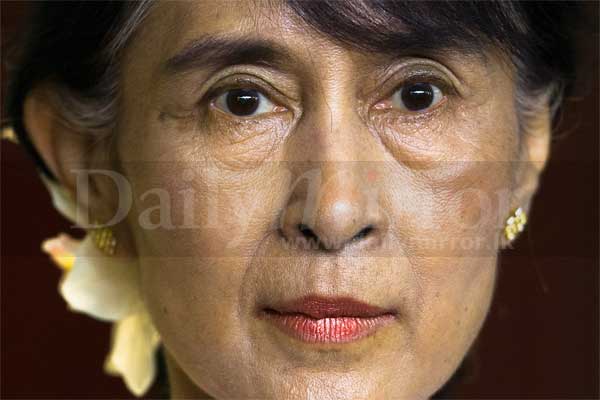22 Jun 2012 - {{hitsCtrl.values.hits}}
.jpg) She is considered easily Asia’s best-known woman, a figure that commands tremendous respect and even reverence for the quiet struggle she has led on behalf of her people. Aung San Suu Kyi needs no introductions – the lady embodies true Buddhist principles and believes that violence does not solve anything – her inspiration has come from the non-violent struggles of Mahatma Gandhi and Rev. Martin Luther King.
She is considered easily Asia’s best-known woman, a figure that commands tremendous respect and even reverence for the quiet struggle she has led on behalf of her people. Aung San Suu Kyi needs no introductions – the lady embodies true Buddhist principles and believes that violence does not solve anything – her inspiration has come from the non-violent struggles of Mahatma Gandhi and Rev. Martin Luther King.
26 Nov 2024 47 minute ago
26 Nov 2024 2 hours ago
26 Nov 2024 3 hours ago
26 Nov 2024 4 hours ago
26 Nov 2024 4 hours ago